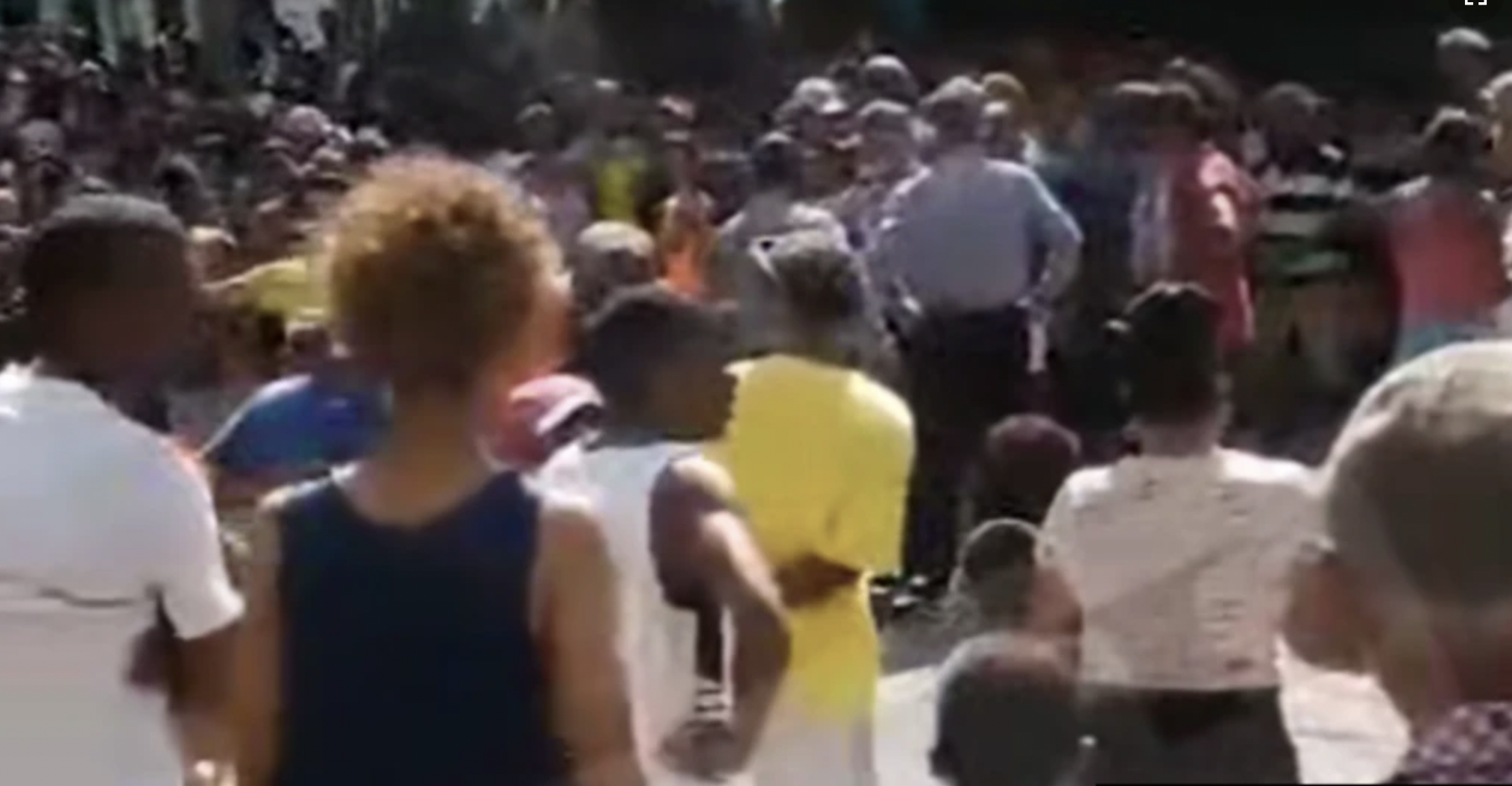Popular protests across Cuba in March 2024
A summary of popular protests in Cuba on March 16th, 17th, and 18th, 2024
By Michael Lima
There are winds of change in Cuba, and the brave Cuban people are its protagonists. The recent demonstrations in cities like Santiago de Cuba, Holguín, Cárdenas, and Bayamo on March 16t,. 17th and 18th are a reaffirmation that the heart of peaceful resistance against oppression and misery beats in Cuba.
Demonstrations in Santiago de Cuba amidst police surveillance. March 17, 2024. Via Martí Noticias.
Since activists and artists staged a protest in front of the Ministry of Culture in November 27, 2020, and subsequently hundreds of thousands took to the streets on July 11, 2021, and throughout 2022, the culture of resistance has awakened in Cuba. The popular demand was for food and electricity, but also for "Freedom," and "Homeland and Life," reflecting the rejection of a system that people see as the root cause of the humanitarian catastrophe in Cuba.
One of the main triggers of the protests has been the prolonged power outages, which leave people in an unsustainable situation, especially children and the elderly who are the most vulnerable, without a fan to cool off in a country with a year-round climate of 30 degrees Celsius. Additionally, the limited rationed food that Cuban families have spoils in the refrigerator due to the lack of electrical power. Cuba’s electrical infrastructure is outdated, poorly maintained, and on the brink of total collapse. People understand that when faced with inhumane blackouts lasting almost a whole day in several cities across the country, coupled with food scarcity, they have no choice but to take to the streets peacefully yet resolutely, demanding their rights decisively.
Santiago de Cuba protests and police crackdown. March 17, 2024. Via Martí Noticias
The regime continues to ignore the Cuban people's demands for democratic reforms and extensive economic changes that would unleash productive forces and pave the way for a market economy. Instead, it responds with force, internet shutdowns, and police deployment to suppress protests.
Doug Madory, the director of internet analysis at Kentikinc, reported a decrease in internet traffic in Cuba and disruptions in mobile services during the protests in Santiago de Cuba on March 17, 2024. Similar reports were also featured by the Wall Street journal in an article titled, “Cuba Curtails Mobile Internet Service as Protesters Take to Streets.” Internet dips of this nature prevent activists and protesters in Cuba from having sufficient speed in their connections to post videos on social media and connect with friends and relatives abroad to share news about what is happening on the island. Meanwhile, human rights organizations have reported at least 5 violent arrests on March 17 in connection with the demonstrations.
A video showed Beatriz Johnson Urrutia, the First Provincial Secretary of the Communist Party in Santiago de Cuba, attempting to appease a crowd. In a condescending tone, she imposed that they listen to her. Far from showing up to address the popular demands, she responded with the usual demagogic rhetoric, hoping that people would accept their misery resignedly. The crowd responded with shouts of rejection, apathy, questioning, even mockery. This reflects the rejection and chronic lack of credibility in a system that the Cuban people stopped believing in long ago.
A brave young protester says, “I have the right to live freely and I will not be forced to leave Cuba,” in front of a police station in the town of El Cobre. Date unknown. March 17 or 18, 2024. Capture screen photo from a video. Via Martí. Noticias
In Bayamo, people chanted “FREEDOM.” Capture screen from a video. Cubanet.
As of February 1, 2024, Cuba has 1,066 political prisoners, making the island the largest jailer of political prisoners in the Americas, surpassing Venezuela (265) and Nicaragua (119) in the number of political prisoners. The regime is responsible for tens of thousands of repressive actions each year against journalists, human rights activists, members of the pro democratic opposition. including forced house arrest, internet shutdowns, temporary arrests, false charges against rights defenders, forced exile, and beatings of civil society members. Today, levels of repression in Cuba exceed those seen in the last two decades. Since July 11, 2021, approximately half a million Cubans have fled to the United States, not counting other countries, in the largest exodus in Cuba's history.
Michael Lima is a human rights activist and an expert in Cuban and Latin American history and politics. He has lectured on modern Latin American history, holds a Master’s Degree/Ph.D. candidacy in Latin American History from the University of Toronto, and is the founder of Democratic Spaces, an NGO seeking solidarity in Canada with human rights defenders and civil society in Cuba.



